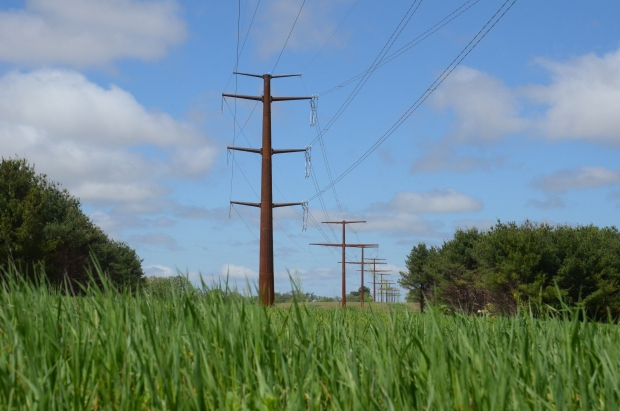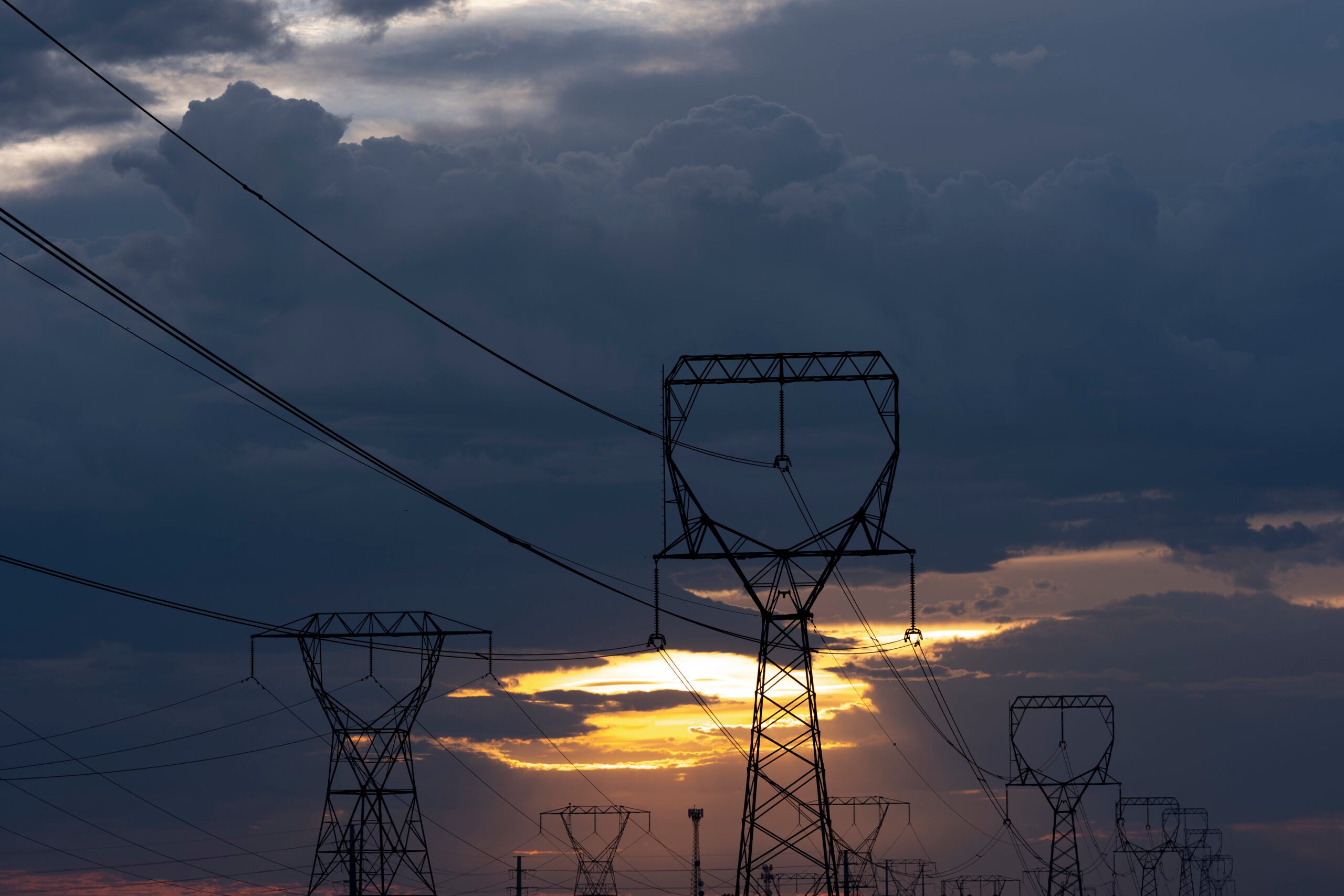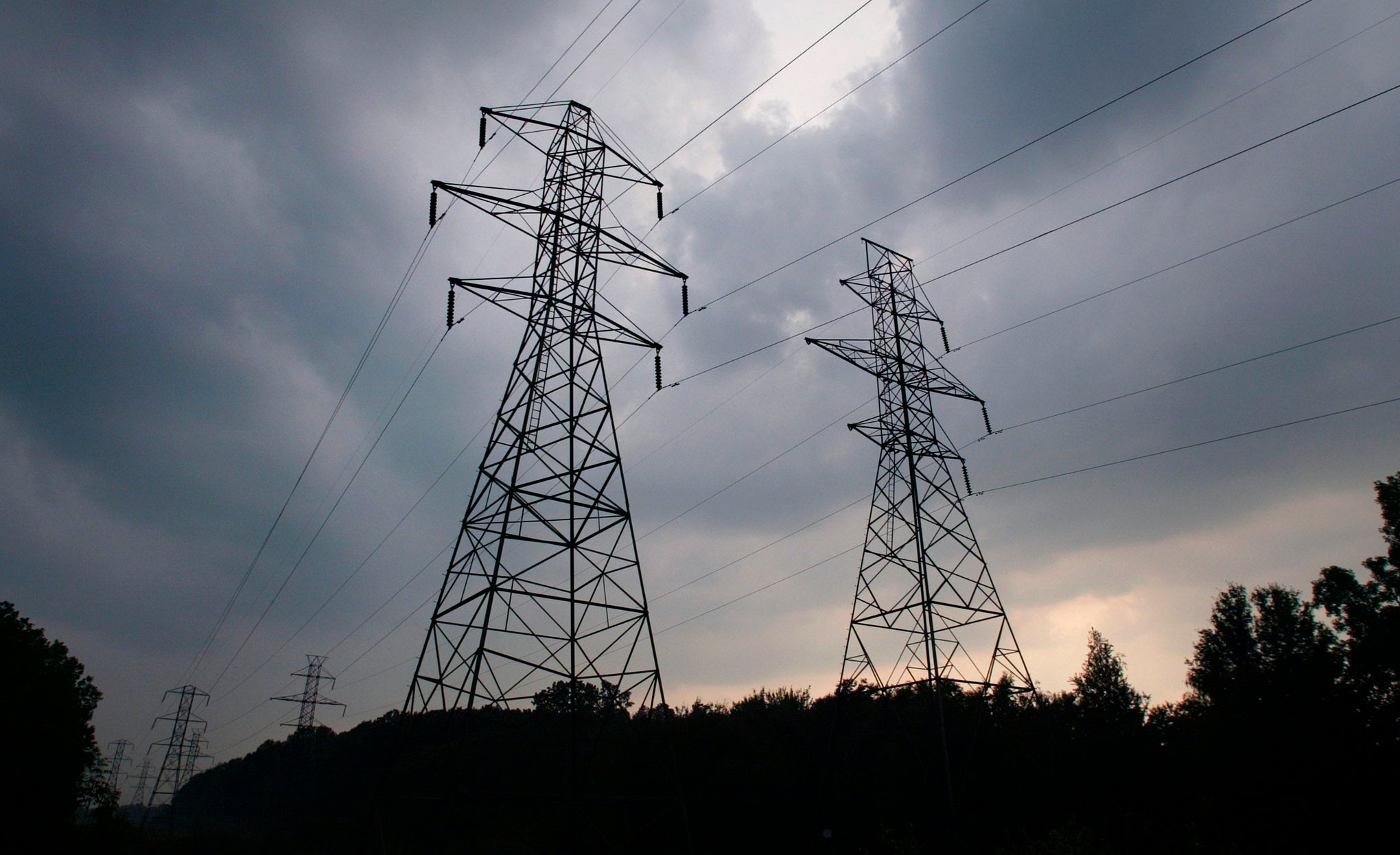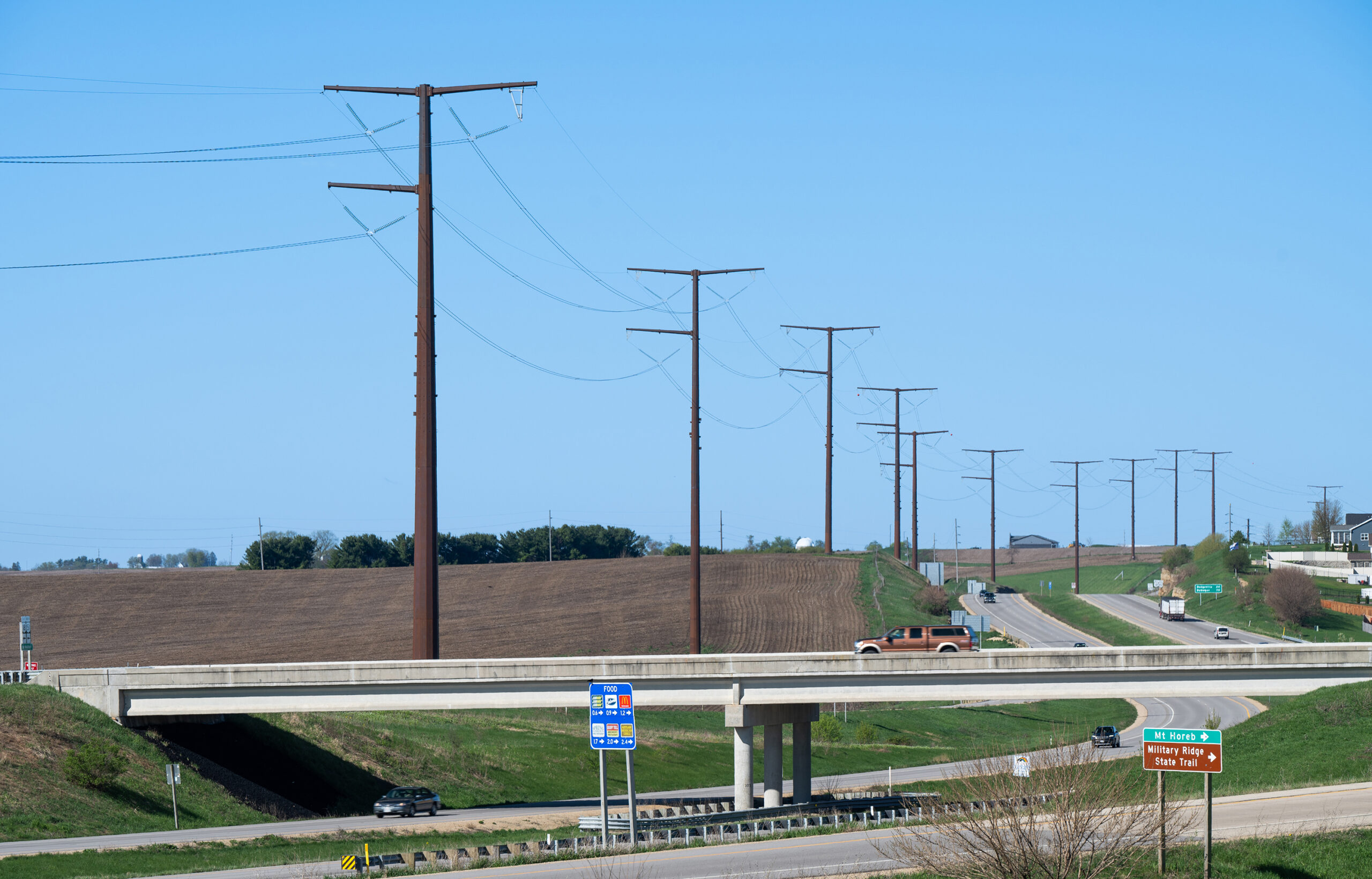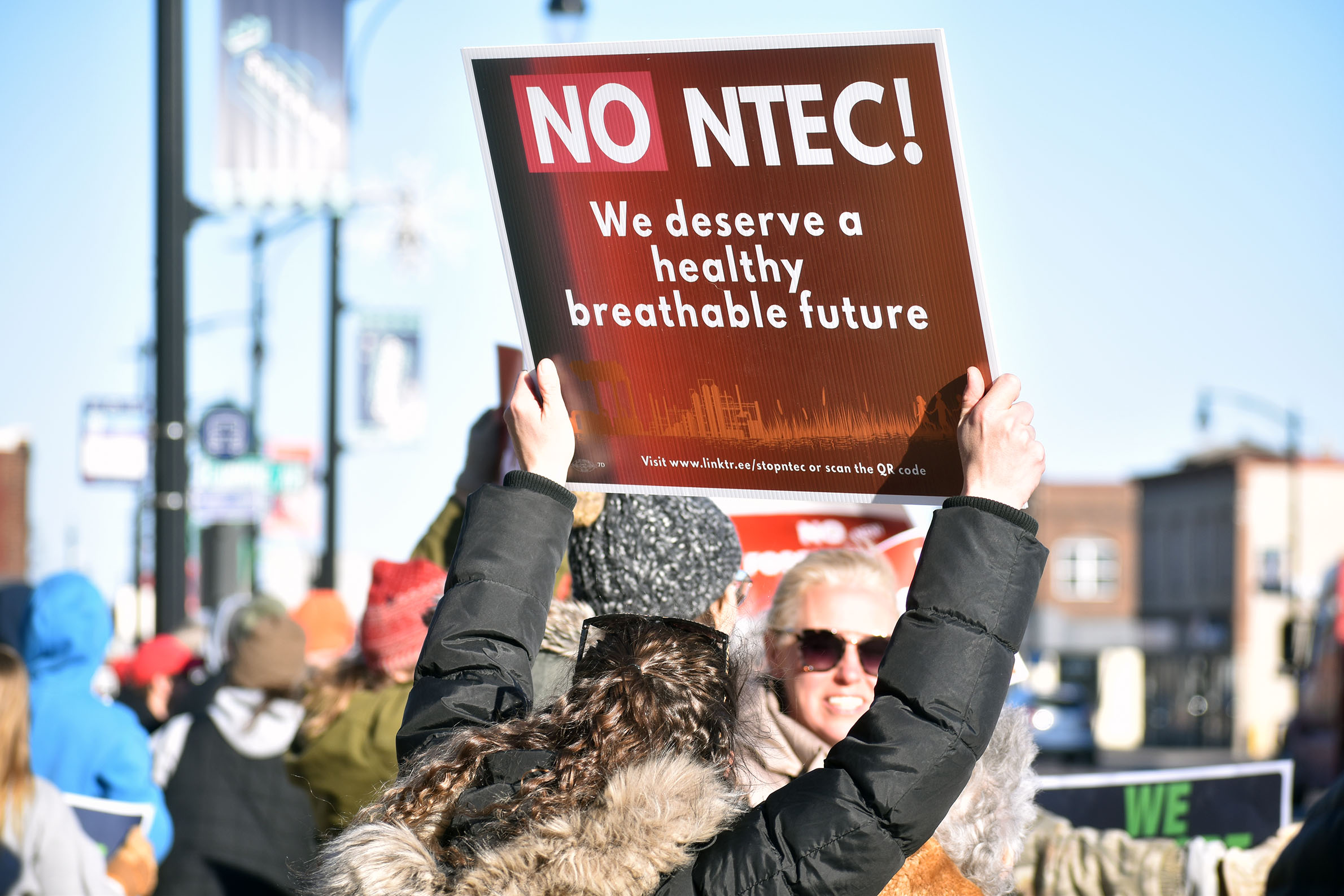A controversial transmission line through southwestern Wisconsin is facing multiple legal challenges from environmental and conservation groups who question the project’s approval by state and federal regulators. Utilities building the line argue those lawsuits threaten to slow progress on transitioning away from fossil fuels and delay the delivery of renewable energy to Wisconsin and the Upper Midwest.
The $492 million Cardinal-Hickory Creek transmission line is the subject of three lawsuits filed by the Environmental Law and Policy Center on behalf of the Wisconsin Wildlife Federation and Driftless Area Land Conservancy. The groups are challenging approvals granted for the project by the Wisconsin Public Service Commission, U.S. Fish and Wildlife Service, Rural Utilities Service and Army Corps of Engineers.
American Transmission Company, ITC Midwest and Dairyland Power Cooperative are building the 345-kilovolt power line that would run 102 miles from Dubuque County, Iowa, to Dane County. The project is expected to create between $23 million and $350 million in economic benefits over its 40-year lifespan. Wisconsin ratepayers would pay around $67 million of the total project costs.
News with a little more humanity
WPR’s “Wisconsin Today” newsletter keeps you connected to the state you love without feeling overwhelmed. No paywall. No agenda. No corporate filter.
Opponents argue state and federal regulators erred in their decision-making, adding the project threatens the Driftless Area of southwestern Wisconsin and the Upper Mississippi River National Wildlife Refuge.
“The Wisconsin public and environment will be saddled with a huge transmission line and 16-story tall towers, marring the landscape, impairing tourism and economic vitality in the Driftless Area communities and taking family farms and people’s land in their communities throughout southwest Wisconsin for the next 40 years,” said Howard Learner, the center’s executive director.
Learner argues federal agencies violated federal law and failed to consider reasonable alternatives that could have limited environmental harm from the project. Environmental and conservation groups also contend that PSC Chair Rebecca Cameron Valcq and then-Commissioner Mike Huebsch should have recused themselves from a decision on the line due to perceived conflicts of interest on the project.
Valcq had previously worked as an attorney for a law firm representing We Energies whose parent company, WEC Energy Group, owns about 60 percent of ATC. At the time of the decision, Huebsch served as an advisory committee member for the Midcontinent Independent System Operator (MISO), which operates the regional electric grid and supports the project.
Both Valcq and Huebsch have previously dismissed the allegations, saying they acted in a fair and impartial manner. A spokesperson with the PSC declined to comment on pending litigation.
In a decision last week, Dane County Judge Jacob Frost ruled in state court that groups could investigate whether Huebsch was biased when he voted in favor of the project. Learner said evidence unearthed in a separate case found Huebsch applied to become Dairyland’s CEO after he left the commission in early 2020, although he didn’t get the job.
“The judge’s decision makes clear that if we prove Commissioner Huebsch was biased, or otherwise, there’s an appearance of bias and lack of impartiality, that constitutes a due process violation, and the commission’s decision would therefore be invalidated,” said Learner.
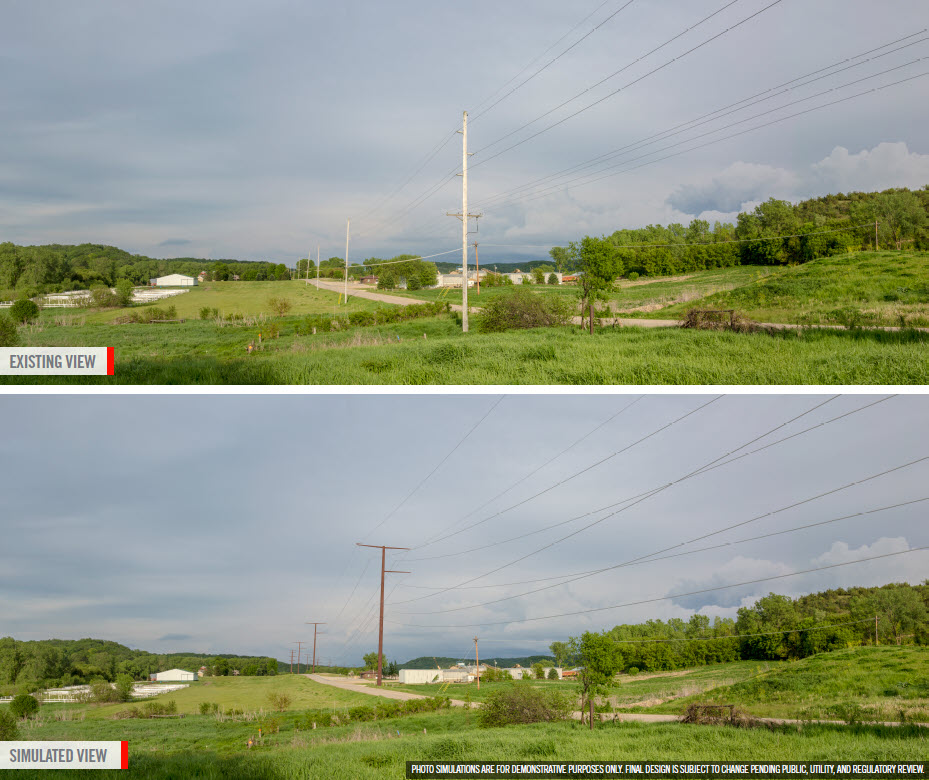
Photo courtesy of American Transmission Company
The utilities argue the Cardinal Hickory-Creek transmission line will provide multiple benefits to southwestern Wisconsin and the region.
“This line, in particular, will reduce congestion on the system, improve reliability and improve access to a changing mix of generation resources,” said Alissa Braatz, the utilities’ spokesperson for the project.
She said 45 power generating sources from Wisconsin and surrounding states are dependent on the project. Those sources represent a combined capacity of more than 7,900 megawatts, of which 42 sources are powered by “renewable fuel.”
Braatz also highlighted that MISO included the line as one of 17 projects that would provide greater access to renewable energy, noting that 95 percent of the route follows existing right-of-way along power lines and highways.
She said any delays to the project as the result of litigation would only increase project costs, which would ultimately be passed on to ratepayers. Braatz argued the line is a vital link to a sustainable energy future, which she notes the Environmental Law and Policy Center is working to advance.
“But accomplishing that, sort of ironically, actually requires the construction of the Cardinal-Hickory Creek line, so we view their overall position as somewhat contradictory in this case,” said Braatz.
Learner contends the transmission line would transmit more power from fossil fuel sources like coal and natural gas plants than renewable energy options like wind and solar, saying better alternatives exist that should be “fully and fairly considered.”
The utilities have started construction on the Iowa segment of the transmission line and continue to conduct studies and work with landowners on acquiring land. The PSC authorized the power providers to use eminent domain to obtain land for the project.
The utilities hope to begin construction on a substation in Montfort later this year. They hope to have the line built and in service by the end of 2023.
Editor’s note: American Transmission Company is an underwriter of Wisconsin Public Radio.
Wisconsin Public Radio, © Copyright 2025, Board of Regents of the University of Wisconsin System and Wisconsin Educational Communications Board.

